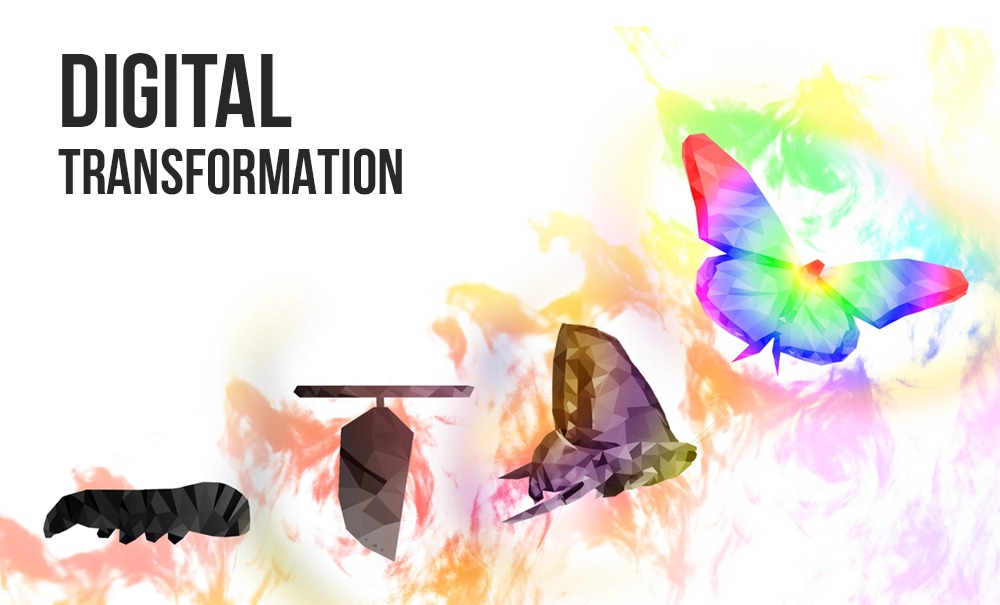
As we come out of the lockdown, businesses must look at long-term plans – a holistic change in the way we use technology. Remote working will continue to be the new norm and companies will need to evaluate digital transformation services in areas where the pandemic has thrown up glaring gaps. Businesses will also need to quickly adapt to new challenges, respond to new market needs that have arisen due to the pandemic and create an adjustment plan that will make them stronger.
Why every business needs a digital transformation strategy
The pandemic challenge has put digital transformation centre-stage for just about every business. This includes educational institutions who have been slower to adopt technology and SMEs who have conducted business offline. Even for business that already have an online presence, responding to new customer needs and employees working remote, requires new initiatives for seamless integration.
Business consultants can work with you to understand your business processes and offer a better insight to ways that your company can optimize operations 360 degrees. Hit the chat icon on this page to begin a conversation with our industry experts, right away.
Here are 3 steps that need to be factored in for your digital transformation strategy.
Step 1: Respond quickly to a need your business can fulfill
India is in a space of opportunity. With many industries moving their operations out of China, India will be a viable alternative. Clothing, pharmaceuticals, medical devices, synthetic clothing material, food products, food processing, mobile phones and related manufacturing is moving out of China. Japan has in fact allocated $2.2 billion to encourage this shift.
India is in the best position to become the destination of choice – a semi-skilled and skilled workforce makes India a country best placed to support bulk manufacturing, assembly and processing. Over 1000 companies have reached out to the Government of India and discussions are at different levels. Korean companies are making the first move, the Korean consulate in Chennai has received numerous requests (Source NDTV).
Indian business must make sure they do not procrastinate since this is the time to reinvent to survive. Companies will aim at getting major deal gains in industries where we already have a good domestic supply chain in place.
“Only technology-centered organizations will reap the rewards offered by a digital business model, including the ability to monetize the data, identify actionable insights, move quickly and automate everything to delight customers. This is why digital transformation needs to be a number one priority.” – Rajesh Janey, President and MD – India Enterprise, Dell EMC
What is digital transformation? It is the use of most recent technology to modify existing business processes to solve problems. Cloud computing will be the central part of digital transformation services. AI-powered chatbots to answer customer queries, Artificial Intelligence and Big Data technology to get insights into both customer preferences and their consumption patterns are some of the other ways. Digital currencies or cryptocurrencies will be another area where Indian technology companies will need to increase their expertise.
Step 2: Pin-point where your company is currently in its digital strategy path
Working remotely over the past 40 days would have quickly revealed the holes in your company’s technological infrastructure. Heads of business have struggled with work-from-home implementation and legacy systems have hindered proper performance. Ensuring that employees remain productive remains a concern.
With all employees working from home and even with the easing up on restrictions, WFH will continue to be the new normal. Technology must improve collaboration and overcome connectivity issues. Video conferencing, file sharing and chat facilities that also ensure data security will continue to be the focus of most businesses. Businesses will start focusing on building threat-resistant networks that will monitor devices that access sensitive information. Multiple-factor authentication will see an increase.
This is the time for businesses to put on the table, discussions about digital transformation investments. Increasingly new business locations and office space will be less of a priority and investment in upgrading legacy systems to drive growth will become the priority. Digitalising systems will increase distribution channels. Movement of business application to the Cloud will be a priority for those businesses that have not yet done so. AI-based business automation will also be one of the priorities

Step 3: Innovating methods for better customer relationship management
The pandemic has taken a toll on how companies will handle customer experience. What was perfected through many iterations before Covid-19 may be all wrong now. Businesses that come under essential services are finding it difficult to keep their customers happy. Service range is often limited and customers are not getting their requirements fulfilled.
On the other hand, customers have cut down spending due to the economic slowdown. Non-essential services will be hit even after lockdown eases. Customer relationship management will need to evolve to sustain loyalty.
Many businesses are worried about their viability post the pandemic and this includes sectors such as travel and hospitality as well as events. Many others will see a greater demand such as internet-enabled communications, collaboration tools. More offline stores will look at online websites and home delivery. Companies will need to set and execute digital transformation strategies today so that they can survive tomorrow.
At iTech, we specialize in Custom software development, IoT solutions, Mobile and web application development, and education management systems. Reach out to our team to discuss your digital transformation strategy.









